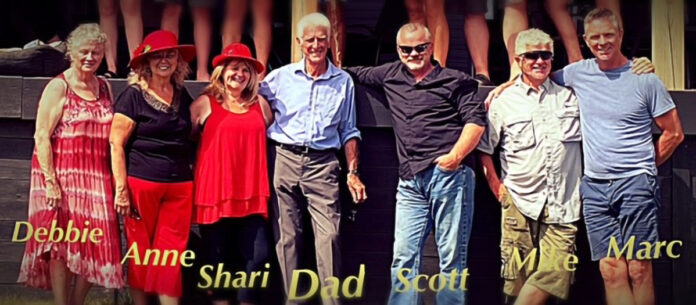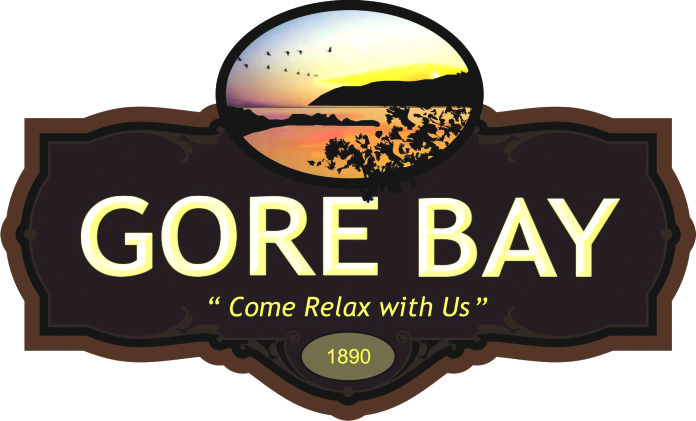WHITEFISH RIVER—Five candidates are standing for the post of Whitefish River First Nation chief and 54 candidates standing for the seven band councillor seats. Standing for chief are Anastasia (Stacy) Cywink, Sandy Jacko, Murray McGregor, Rodney Nahwegahbow and David Shawanda—The Expositor has reached out to each of the candidates for chief for details on their platforms and those interviews can be found below.
Standing for the council seats are Talon Chin-McGregor, Raymond Francis, Thomas Francis, Candice Jacko, Clifford Jacko, Gail Jacko, Jordi Jacko, Louise Jacko, Paige Jacko, Roxanne Jacko, Tania Jacko, Kim Laundrie, Melanie Manitowabi, Vanessa McGregor, Anita R. McGregor, Anthony Blair McGregor, Brandon McGregor, Brian A. McGregor, Caralyn (Cara) McGregor, Giselle McGregor, Jeffrey McGregor, Justin A. McGregor, Leslie McGregor, Lorrilee McGregor, Lynn McGregor, Marida McGregor, Michael Dennis McGregor, Michael John McGregor, Tristan McGregor, Valerie McGregor, Crystal McGregor-Clark, Kigen McGregor-Pelletier, Bonnie Nawehgahbow, Curtis Nawehgahbow, Keith Nawehgahbow, Leona Nawehgahbow, Tammy Nawehgahbow, Julian Nowgabow, Esther Osche, Allien Paibomsai, Edward Paibomsai, Julianne Pires, Arianna Pitawanakwat, Carmen Pitawanakwat, Carson Pitawanakwat, Ignatius Pitawanakwat, Martha Pitawanakwat, Andrew Recollet, John Recollet, Hunter Shawanda, Richard Shawanda, Marilyn Jean Stevens (Ziegler), Murray Still, Amy Waboose-Jacko and Ann Robin Ziegler.
The election will be held at the Whitefish River First Nation Community Centre in Birch Island from 8 am to 8 pm on February 21. The band custom election code, supporting documents and official voters list of all eligible electors is posted and available during regular business hours at the Whitefish River First Nation administration office can be requested from the electoral officer or downloaded from onefeather.ca/nations/whitefishriver.
Eligible voters may vote electronically, in person at the polling station or by mail-in ballot.
To vote electronically until February 21 electors should visit the above website and follow the instructions provided (a 10-digit band registry number starting with the numbers 230, date of birth and an email address will be needed).
To vote by mail, eligible voters residing off-reserve were sent a ballot (provided the electoral officers have a current residential mailing address). If an eligible elector has not received a ballot package they are requested to contact OneFeather as soon as possible to provide an address.
Electors can receive information from the candidates by agreeing to have their address released to the candidates. The count will begin at 8 pm on February 21 in the community centre.
For more information, contact OneFeather by email at support@onefeather.ca, or by calling 1-855-923-3006.
Anastasia Cywink
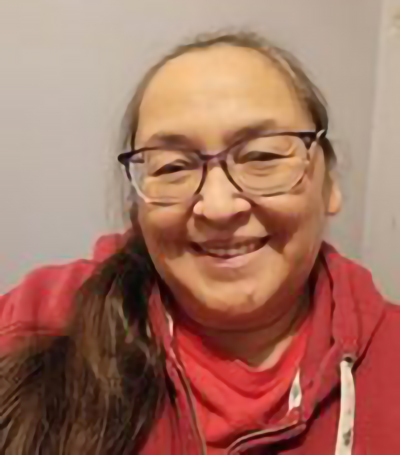
Anastasia Cywink has been an educator for close to 20 years. With her spouse, she has raised three boys to adulthood and is the proud grandmother to three children.
“I am running for chief because I think we need a change,” she said. “I have always advocated for our community on different issues in the past with the leadership.”
Although she has lived outside the community for a number of years, Ms. Cywink has returned to Whitefish River First Nation at every opportunity.
The first order of business that is facing the band are its policies, she said. “Those policies need to be overhauled and updated,” she said. “We need to take time for that. There used to be more accountability and inclusiveness, consultation with all the members and keeping them updated and clued in as to what is happening.”
“Education and business areas of the community need to be supported and expanded,” said Ms. Cywink, noting that ventures and institutions need to be put in place “so that our people can be more successful.”
“Health and social preparedness need to be accommodated and support all age groups,” continued Ms. Cywink. “We need to target everybody.”
Strengthening Anishnaabemowin and cultural knowledge will be imperative when it comes to building a resilient community, she said. Ms. Cywink noted that traditional knowledge has sustained the people of Whitefish River First Nation for generations, but without constant nurturing within the community those foundations will be eroded.
Health and social programming, including housing, are high on Ms. Cywink’s set of priorities. “We need to get the ball rolling on some of our properties.”
The candidate for chief noted that the community is much more than just those living within the boundaries of the reserve. “We need to include off-reserve people,” she said. “That means being able to access programming, being able to approach the band leadership. I intend to work for the whole community.”
Ms. Cywink said that she is well aware that the chief is only one voice around the table. “It’s the council that has the power,” she said, noting that it is important to bring the people sitting around the council table together with a common cause. “You have to put aside your own interests and be open to collaboration with everybody, not just one group or sector of the community.”
She said she believes her experience in education will help Ms. Cywink to bring people together and bridge divisions. But she also has a significant amount of knowledge to bring to the table, having worked for Indian and Native Affairs Canada and the Chiefs of Ontario in the self-government department and finance areas of those organizations.
In addition to being a teacher, Ms. Cywink has worked on the administration side of education, holding a number of positions at senior levels.
She suggested that many of the current divisions within the community stem from misunderstandings of the ways and means that bands operate under. Working to build a better understanding of how the band is administrated and the processes behind getting something addressed will help heal those divides and bring people together for the common good.
Sandy Jacko
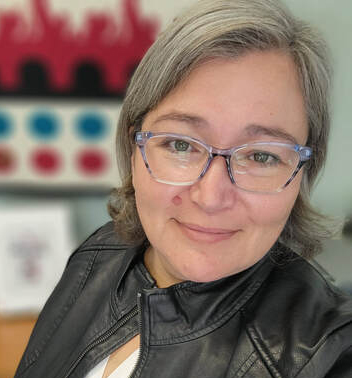
When Sandy Jacko became band manager for Whitefish River First Nation, she felt it was something she had been training for forever. She’s worked for a lot of First Nations organizations and has a Bachelor of Arts in Community and Social Economic Development. Now she wants to put the experience and knowledge she’s gained over the years to use, from the other side of the table. Ms. Jacko is one of several candidates vying for the position of chief in the upcoming Whitefish River First Nation (WRFN) election.
As administrator, she works on implementation of strategic priorities set by chief and council. She wants to be one of the people who develops those ideas and goals. “As the band manager, I put people out there and we work on what chief and council say is our directive, that are our goals for the year, but I want to be part of the ones that set it,” she said. “Where I’m sitting at the table I can’t make change. I can’t effectively participate in the change process, but if I sit at the other end of the table as the chief then I’ll have the seat where I can make change.”
Ms. Jacko grew up in Birch Island and is a member of WRFN. She has lived in Toronto, Sault Ste. Marie and various other places, but has resided in Birch Island for more than half of her life. Her son and family are there, as well as a lot of extended family.
She has worked at United Chiefs and Councils of Mnidoo Mnising (UCCMM), at Aundeck Omni Kaning, and has filled several roles at WRFN. On top of her degree, she is a certified economic development officer and recently took a bookkeeping certificate course through Kenjgewin Teg. “I like learning new things and trying new things and growing,” she said.
One of Ms. Jacko’s priorities is setting realistic strategic goals. “How the political process works in Whitefish River, and I think this is similar in most First Nations, is after the election you set strategic goals for your term,” she explained. “I’ve been working with those goals for the past year-and-a-half now and it’s quite a bit of a challenge when they’re pretty broad.”
Tying to narrow down what can be done in four years and narrowing it down to “what we can do for Whitefish River First Nation” is important to her.
On her website (sandyjacko.com), Ms. Jacko writes about ‘rights and responsibilities.’ “Whitefish River First Nation is in negotiations with Ontario for land and those are very important to me, in ensuring that our rights and responsibilities are upheld,” she said.
She explained that consultation as it stands is based on “what Ontario’s point of view is.” What Ms. Jacko can bring to the table is the determination and knowledge of how to ensure WRFN’s point of view is heard and that its rights are upheld.
“They determine what our rights are and we have to go in and talk about what we see our rights as and our responsibilities to the land,” she said. It’s a different perspective that they have generally, because Ontario follows the ‘consultation spectrum’ and Ontario determines when they have to consult with First Nations.
“They are still determining what is important to us,” she added. “What are our rights, and what are our responsibilities, and they’re still dictating to us when they follow this consultation spectrum. We see that with mining and that’s a big thing in this area.”
There’s a lot of mining just north of WRFN with a lot of prospecting going on. “That’s a very big, important thing that we haven’t touched a lot on in the past and we’re just starting to get into exploring that,” said Ms. Jacko. She believes her background gives her a bit more leverage on this issue.
“Those are very important things that lead into economic development, lead into conservative environmentalism and all these different things that are important to our First Nation. Those are the issues. Those are the things that are coming up. That’s where I’m at. I can see what’s coming and I want to be part of that discussion.”
She explains she is very much a ‘what if’ type of person. “I do a lot of ‘what if’ scenarios. What happens if they (prospectors) actually find something? Is Whitefish River prepared for that? At the moment, no. So, I want to be part of the strategic goal planning that says ‘okay, let’s get prepared for this.’ Let’s not wait until it happens to start discussing it.”
Ms. Jacko acknowledged there are many candidates for chief during this election. What that says to her is “everybody is interested in making the community better.”
“A lot of community members talk about the changes they’d like to see and what they want to happen here and I think that’s really important and we can build on that,” she said. As an administrator, she has seen in the past how people can lose faith in the process which leads to reduced engagement in the community.
“It’s not just the community members who live here, it’s our whole population,” said Ms. Jacko. She and another candidate did do some campaigning among community members who currently live in Toronto and in Sudbury. “People are asking to be engaged, to be part of the discussion, and I think that’s the most important thing. The only way you’re going to get buy in from your community members is if they’re part of the process, so having that restored or improved upon. They’re still active and very vocal, so on all levels.”
Whether Ms. Jacko is elected as chief or she stays on as band manager, she is “still going to do what I can.”
She believes it comes down to growing. “It’s not better or different, it’s about the growth of the community. We need change to make that happen. I really want to be part of it, just like every other community member. I just want to be part of making our community a little bit better place to live.”
Murray McGregor
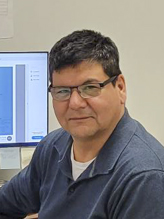
With extensive work dealing with members of the public, government and one who considers himself a team player, Murray McGregor has decided to take the plunge and put his name forward for the chief’s position in the Whitefish River First Nation chief (and band council) elections.
“I have extensive experience working with others,” stated Mr. McGregor.
Although he has never previously served as chief or as a member of council Mr. McGregor told The Expositor, “There are a few reasons I decided to run for chief of the community. With the recent vacancy, I feel a new direction for the community is needed, along with continuing some of the work that had been started by the previous leadership.”
“I have had about 30 years of experience working in public works from the ground up to senior management,” said Mr. McGregor, who has worked as public works manager for the M’Chigeeng First Nation for the past two years (he’s starting his third year) and working on capital projects, a similar position he held previously in WRFN. “I have extensive experience with infrastructure projects and working with the community, leadership and government on major infrastructure projects.”
“I also feel that I could add a different element in the healing process of our first nation as it pertains to the truth and reconciliation calls to action,” said Mr. McGregor. “I have lived almost all of my life in WRFN, having lived away for about 10 years in order to go to college, and later working in Sudbury.”
“I worked with the WRFN band in the area of construction of the health centre, new school, daycare, and administration office. I was the lead on most of these projects in the community,” continued Mr. McGregor. He noted a new subdivision under construction in the community is a positive, “we need to keep up with housing demographics to support the population growth we have seen in the community the past few years.”
“We need to focus on the healing of the community involving the residential schools,” said Mr. McGregor. “There needs to be ongoing work and support for those people in the community who attended the residential schools and the ripple affects that all of this has had on them and the community.”
“Those are the main areas we need to focus on, capacity building and community healing, with the baby boomers soon going to retire, the next generation is ready to take over as leaders in the community,” he added. Mr. McGregor said that with his extensive experience in dealing with the public, band and government leaders and his team player attitude, “I have been told I am a natural leader.”
Rodney Nahwehgabow

Rodney Nahwegahbow, Gmiwin nini (Rain Man) is married to his wife Beverly and is the father of two and proud grandfather to four. The member of the Wolf Clan has been a lifelong member of the community and says that he “was raised with the respect and value of our land. I am honored to have the knowledge and skills of trapping, hunting, and fishing provided to me by my parents and grandparents.”
Mr. Nahwehgabow retired in 2019 after more than 30 years public service in law enforcement, most recently as police chief of the UCCM Anishnaabe Police Service.
“My work experience has provided me with the insight to see that community service through prevention is the best solution to solving problems, therefore, I am committed to understanding and implementing proactive community responses which will support harm reduction strategies,” said Mr. Nahwehgabow. “This will help address the presence and negative influences of drug and alcohol abuse in our community. As a chief and council, we will provide support to programs like Family Well Being and First Nation Child and Family Services to help address the overrepresentation of children in care.”
Mr. Nahwehgabow said that he has also had the opportunity to serve on numerous boards, not only in relation to policing, but was also a member of a provincial task force on mental health issues. No stranger to band politics, Mr. Nahwehgabow has served two terms as a band councillor for Whitefish River First Nation.
“I would initiate meaningful community engagement sessions to focus on understanding the grassroot needs from all sectors of our membership from our youth to our elders,” said Mr. Nahwehgabow on his approach to governance. “I would ensure involvement includes both on-reserve and off-reserve membership and that open communication is ongoing. The ideas and feedback provided by the community will serve as the building blocks necessary to restoring faith and trust in the elected chief and council.”
Mr. Nahwehgabow said he “looks forward to working with council in supporting the growth of small business and entrepreneurship to expand and generate industry on the Whitefish River First Nation.”
Improving relationships with First Nation and non-First Nation service providers would be accomplished “by understanding and identifying where support is needed and assist those agencies in building capacity for the benefit of our community.”
“With the support of council, I would also like to address the well-being of our administration and front-line staff as well as the community by ensuring that an employee retention strategy is in place which, in turn, will help ensure the highest quality and delivery of services to our community.”
“I would take an involved and enhanced approach to local and national issues such as Missing and Murdered Indigenous Women and Girls and crimes against 2SLGBTQQIA,” he said. “I am firmly committed to understanding the root causes of violence against Indigenous women and other marginalized groups in our First Nation community at large and determining how we can effectively collaborate with partners to reduce and eliminate these tragic crimes that harm our women and families.”
David Shawanda
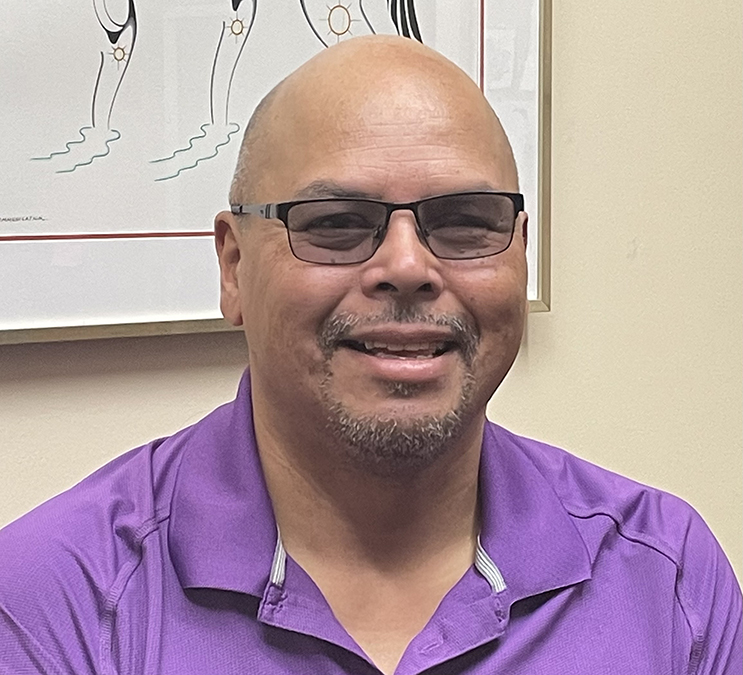
Whitefish River First Nation (WRFN) candidate for chief David Shawanda is well-seasoned in the ways of council and band administration. Mr. Shawanda has 10 years of council experience as a band councillor and held the title of financial director for the community for an impressive 23 years.
Mr. Shawanda believes his many years of experience gives him a unique insight into the inner workings of the community which would lead to having a great impact and which would assure greater accountability to the membership.
He believes that staying on top of the community’s land trust agreements and funding transfers from the government are of paramount priority.
Mr. Shawanda is currently working as a financial analyst at the Ontario Federation of Indian Friendship Centres, based in Toronto. However, if elected, he says he will move home to perform the duties of chief.
“I have a good knowledge of programs and services offered by all levels of government and the private sector/corporations to assist both on and off-reserve band members,” he told The Expositor. “Knowing the ins and outs, I’d be able to hit the ground running.”
Mr. Shawanda holds a BA in public administration and governance and a diploma in accounting.
“This has been my entire life, so running for chief is the logical next step,” the candidate for chief said.
Mr. Shawanda said he realizes that all of his fellow candidates would agree that such topics as child welfare, housing, economic development, family well-being and education are all extremely important aspects of running the community. He said he believes that in the current economic climate and with the high cost of living, providing all the direct supports the First Nation can to help band me bers (including from a land claim settlement WRFN reached a few years ago with the government), the better.
Mr. Shawanda would also like to see an increase to the living allowance for post-secondary students, which has rarely been done, he said.
“Anything we can do to help students become successful, we need to do it,” he added.
Mr. Shawanda said he would also push for better connectivity for the residents of WRFN. The pandemic proved how spotty the infrastructure is, he noted.
Mr. Shawanda’s background in finance is key to his platform—full transparency for the band membership.
“It is a financial and administrative take on the role of chief,” he said.
Mr. Shawanda is the proud stepdad to four children and a number of step-grandchildren.
Mr. Shawanda has represented WRFN in numerous capacities over the years, including the Manitoulin Hotel and Conference Centre, Mnaamodzawin, Mnidoo Mnising Employment and Training boards.
“I recognize that there is a lot to taking care of the community,” he added, saying he believed it was important to utilize the special talents of the community members and traditional knowledge keepers and involve them in their fields of specialty when it comes to tackling greater issues. “Everyone has ideas to contribute, and I welcome those. It’s important to get those ideas, not just leave it solely to chief and council.”
“Finally, I feel that as Ojibwe people, it is vitally important to govern ourselves with the 7 Grandfather Teachings guiding and informing all decision making,” Mr. Shawanda concluded, recalling the teachings: Love for the community, seeking wisdom, having courage, being honest, knowing truth, having respect and serving humbly to the betterment of WRFN for the people.”


